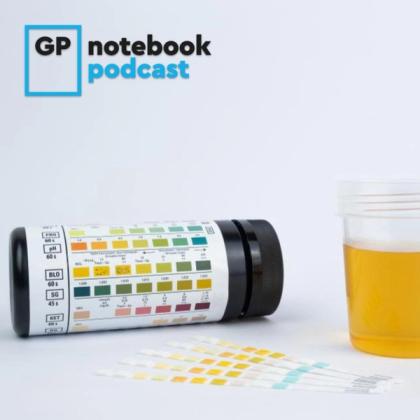Ep 20 - Management of non-visible haematuria (microscopic haematuria) in primary care

Posted 1 Dec 2020
In this episode, Kevin looks at common questions around non-visible haematuria (NVH) – the condition formerly known as microscopic haematuria. Should we be screening for NVH? What follow-up investigations should we do for people with asymptomatic NVH? Should we change our approach for patients taking aspirin, warfarin or direct-acting oral anticoagulants (DOACs)? Finally, who should we refer and how urgently?
Key references and resources discussed in the episode:
- Renal Association and British Association of Urological Surgeons. Joint Consensus Statement on the Initial Assessment of Haematuria.
- Hole B, Whittlestone T, Tomson C. Investigating asymptomatic invisible haematuria. BMJ. 2014;349:g6768.
- NICE. Suspected cancer: recognition and referral. NICE guideline NG12. 2015.
- NHS Scotland. Scottish referral guidelines for suspected cancer. Urological cancers. 2019
Key take-home points from the episode:
- There is no compelling evidence to support population screening for NVH in asymptomatic people.
- All those with persistent NVH require primary care follow-up to exclude progressive kidney disease.
- Persistent is defined as asymptomatic NVH that persists for at least two out of three samples, separated by 2–3 weeks.
- Assess baseline renal status: blood pressure, urea and electrolytes and urinary albumin to creatinine ratio.
- Individuals on aspirin, warfarin or DOACs should be managed in the same way as those not on these drugs.
- Those <40 years with persistent NVH and normal baseline renal function need annual primary care monitoring for as long as the NVH persists (until two negative urinalyses).
- Refer to renal if estimated glomerular filtration rate (eGFR) is <30 mL/min/1.73 m2 on two separate occasions or eGFR falls by >5 mL/min/1.73 m2 over 1 year or >10 mL/min/1.73 m2 over 5 years or the person develops proteinuria.
- Those ≥40 years require referral to urology.
- NICE 2015 suspected cancer guideline suggests an urgent 2 week wait referral for bladder cancer if the person is ≥60 years and has unexplained NVH and either dysuria or a raised white cell count.
- Scottish 2019 cancer guidance suggests:
- An urgent suspicion of cancer referral for those ≥60 years with unexplained NVH and either dysuria or a raised white cell count.
- Routine referral for all those with asymptomatic persistent NVH without obvious cause.
Create an account to add page annotations
Annotations allow you to add information to this page that would be handy to have on hand during a consultation. E.g. a website or number. This information will always show when you visit this page.